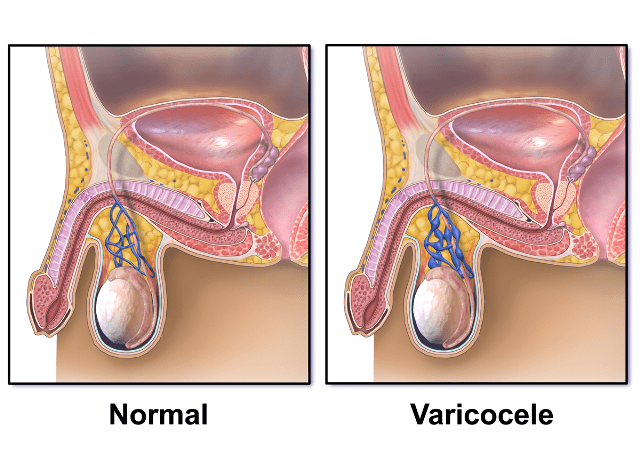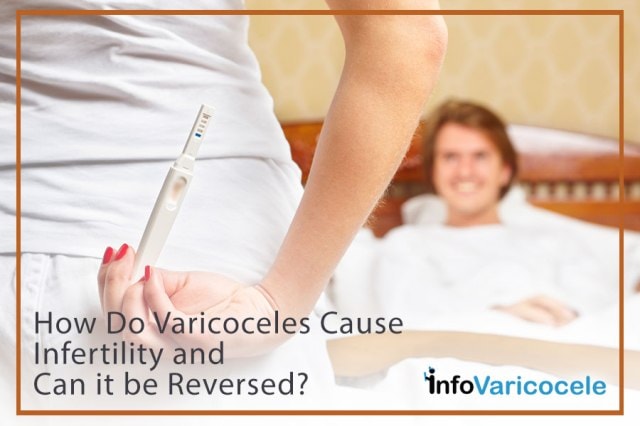Varicocele – A Leading Cause of Male Infertility: Health Awareness
When a couple is planning to have a baby but having difficulty getting pregnant, it is only women who are assumed to have infertility issues. But one should be aware that fertility problems can be male oriented too. And one of the many possible factors contributing to male infertility may be related to a condition known as Varicocele.

Varicocele is one of the leading causes of infertility in over 30% males aged below 30. Yet no one seems to talk about the issue. Doctors have confirmed a link between the dysfunctional veins caused by varicocele and infertility.
What Is a Varicocele?
Varicocele is an enlargement of the varicose veins within the scrotum or testicle. The scrotum is a skin-covered sac that holds testicles. It also contains the arteries and veins that deliver blood to the reproductive glands. A vein abnormality in the scrotum may result in a varicocele. A varicocele develops slowly over time. Most males are diagnosed between the ages of 15 and 25.
Important Facts about Varicocele:
- Varicocele causes an increase in the temperature of the testicles, which affects sperm development
- Varicocele can result in decreased sperm production and quality, which in some cases can lead to infertility.
- Varicocele can also shrink the testicles and One testicle may appear to be larger than the other
- Varicoceles is very common and we have more than 10 million cases per year (India)
- It is not believed to be genetic.
- Varicoceles generally form during puberty
- It is more commonly found on the left side of your scrotum.
- Varicocele can happen as a result of trauma, such as an accident.
- Usually self-diagnosable
- There can be pain, particularly when lifting.
- It can be treated by a surgery or non-surgical treatments
Causes of Varicocele
- A varicocele may develop as a result of poorly functioning valves that are normally found in veins. Defective valves, or compression of the vein by a nearby structure, can cause dilatation of the testicular veins near the testis, leading to the formation of a varicocele.
- In some cases, Lifestyle can also play an important role in the occurrence of Varicocele. It depends on various factors such as activity type, diet, smoking, and alcohol
Treatment for Varicoceles
Varicoceles that cause no symptoms typically require no treatment. But, if you are having pain and facing infertility issues you may want to consider treatment.
Two types of treatments are possible:
- Surgery: There are 3 different approaches to the surgery. It is called Varicocelectomy, a same-day surgery performed by Urologist. The area has to be kept with Ice packs for sometime after surgery to reduce swelling. The patient may be advised to wear a scrotal support for some time after surgery. The procedure has possible complications like bleeding into tissues, infection, or injury to the scrotal tissue or structures
- Varicocele Embolization: It is alternative to surgery and a minimally invasive treatment for varicocele. It is performed by an interventional radiologist. This involves passing a small wire through a peripheral vein and into the abdominal veins that drain the testes. The recovery period is significantly less than with surgery and the risk of complications is minimized with overall effectiveness similar to surgery. It immediately restores blood flow to healthy veins and improves chances of conception
Also, Grocare India is trying to raise awareness about the disease and also has a solution for it. Grocare India is providing ‘varicocele treatment without surgery‘ to help you treat the same and recover fast without going through the crucial surgical treatment.
- http://www.healthline.com/health/varicocele#Outlook7
- https://en.wikipedia.org/wiki/Varicocele
- http://resources.infovaricocele.com/blog/30-stats-about-varicocele-infertility-that-you-did-not-know
Image Source: Google

